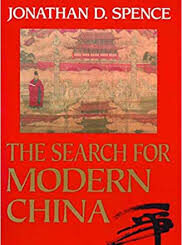Guns, Germs, and Steel by Jared Diamond
Life is not always fair. If you travel in developing countries what we used to call the Third World it s hard not to wonder about the unequal divisions of our planet s wealth, why some people have so much, and others so little.
I spent a year recently in Egypt, a wonderful country but very poor, where hundreds of thousands of young people graduate each year from universities only to find little prospect of employment. Egyptians tend to feel particularly put-out when it comes to their economy, since on both sides of them, east and west Saudi Arabia and Libya there are lands with huge reserves of oil, but they have none. This is simply bad luck.
In a similar fashion, many populations in Africa, Asia, and South America lack such basic necessities as clean drinking water, while for others in wealthy nations there s such surplus that designer water is the rage expensive little bottles imported from Fiji or France simply to satisfy the taste for the exotic. Personally, I sometimes feel embarrassed, returning to the United States, to find myself in gargantuan supermarkets where all the treasures of the Earth are for sale . . . and are taken entirely for granted.
Why are some places on the planet so lucky, while others are not? An extremely interesting book, Guns, Germs, and Steel, takes an anthropological look at this most basic of all human questions, examining why history has unfolded so unfairly on different continents over the past 13,000 years. To some extent, the answer appears obvious: by the year 1500, Western Europe had developed the technology of guns and steel which gave them a decided edge over those populations which had not yet arrived at the Industrial Revolution. Less obvious (though equally intriguing) is the question of germs: how some people built up immunity to disease, while others, like the aboriginal peoples of the New World, had no immunity at all, causing them to fall helpless victim to smallpox and other marauding bacteria of the invaders.
Yet why did Western Europe get the edge on industrialization? Why did King Charles I of Spain conquer the Incas, rather than the other way around? The questions go on and on. Guns, Germs, and Steel explores the past 13,000 years of planetary history and comes up with some fascinating theories. Jared Diamond, who won the Pulitzer Prize for this book, looks closely at basic anthropological questions most people don’t bother ask. Why did some peoples of some regions fail to domesticate plants? Why wasn t the wheel invented in the New World? Why were most big wild mammal species never domesticated? If the zebra had been as easy to domesticate as a horse, would Africa now be the dominant superpower of the world.
Jared Diamond, who is a professor of physiology at the UCLA School of Medicine, examines huge amounts of information, sifting for trends, and arrives at a sharply focused overview. He takes us on a brilliant whirlwind journey through the history of all the continents a short history of everybody, in fact, discounting any racist theories people might have about their own superiority, and coming to grips with vast notions of accident and geography.
Guns, Germs, and Steel is an important book and I recommend it highly. In our divided world of winners and losers, rich and poor, it’s vital for us all to look closely at the inequitable distribution of global wealth, an injustice that is the source of much violence and unrest. There are no easy solutions, but a discussion of how this inequality came about is at least a modest start.
- National Epilepsy Day 2023:Common Signs And Symptoms - November 17, 2023
- Top 10 Cosmetic Packaging Designers in the USA - April 12, 2023
- Luxury Website Designers: The Ultimate Guide to Creating a High-End Website - April 10, 2023


